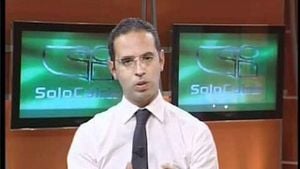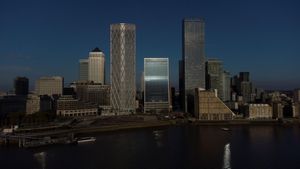Donald Trump made headlines on January 20, 2025, as he quickly set to work reversing numerous policies of the Biden administration through the signing of multiple executive orders. This marked the beginning of his second term as the 47th President of the United States, and he aimed to deliver on promises made during his campaign about rejuvenation and radical changes across various sectors.
Among Trump's immediate actions was the declaration of a national emergency at the southern border with Mexico. He boldly stated, "I will declare the emergency at our southern border," signaling an aggressive approach to immigration. Trump promised, "All illegal entries will immediately be stopped, and we will begin sending millions and millions of criminal foreigners back to where they came from." This proclamation was intended to facilitate the expulsion of undocumented immigrants and reinstate previously repealed policies.
Another major tenet of his agenda was the abrupt withdrawal from the Paris Climate Agreement. Standing before around 20,000 supporters at the Capital One Arena, he asserted, "I am immediately withdrawing from the Paris Climate Accord, which is unjust and one-sided." His decision to back out from global climate commitments set the tone for his administration's approach to environmental policy, reviving fossil fuel initiatives under the slogan "Drill, baby, drill." These steps could likely threaten U.S. engagement on climate issues globally.
Trump also moved to reinstate policies concerning the Panama Canal, declaring, "We are going to take back the Panama Canal," which reverberated strongly among international observers. He labeled previous agreements as "ridiculous gifts" and emphasized restoring U.S. influence in the region, reflecting fears of increased Chinese presence and control. This sentiment underscored Trump's approach to foreign policy—assertive and nostalgic.
Continuing his trend of significant policy shifts, Trump addressed gender and immigration laws. He commented on the termination of birthright citizenship, implying changes to the rights of children born to undocumented immigrants. Trump proposed, "We will end the practice of birthright citizenship," asserting it as part of his broader immigration reform agenda.
Furthering these points, he also announced actions directed at the World Health Organization, claiming, "The WHO has scammed us." This decision to withdraw from the organization reflects Trump's sustained critique of international bodies perceived to undermine U.S. sovereignty and interests, especially during the COVID-19 pandemic.
One of the most significant legal questions raised by these policies revolves around their potential for constitutional challenges. For example, Trump's assertions around the end of birthright citizenship came under scrutiny from legal experts who argue the 14th Amendment protects these rights. Observers predict extensive litigation as opponents seek to challenge the constitutionality of many of Trump's aggressive rulings.
Trump's actions have prompted varied responses from the political spectrum, particularly from Democrats and advocacy groups. This outcry aims to reflect deep concerns over the potential human rights violations and environmental degradation stemming from these sweeping orders.
Overall, Trump's first days back in office showcased a decisive shift from the policies established by his predecessor, Joe Biden. The early initiatives focused on re-establishing conservative values and addressing what Trump calls "the deep state"—institutions and norms he believes have restricted his governance.
While he celebrated these changes as heralding the "new age of America," critics warned of the widespread ramifications these decisions hold for democracy and social justice within the U.S. Going forward, many will be watching closely how these policies play out against the backdrop of public sentiment and national engagements.
Trump declared during his inauguration address, "Today starts the new age of America, and it will be successful." Despite the significant criticism and repercussions his orders could generate, the former president remains optimistic about redefining the nation’s path forward.



